Q&A with Dr. Chaney St. Martin
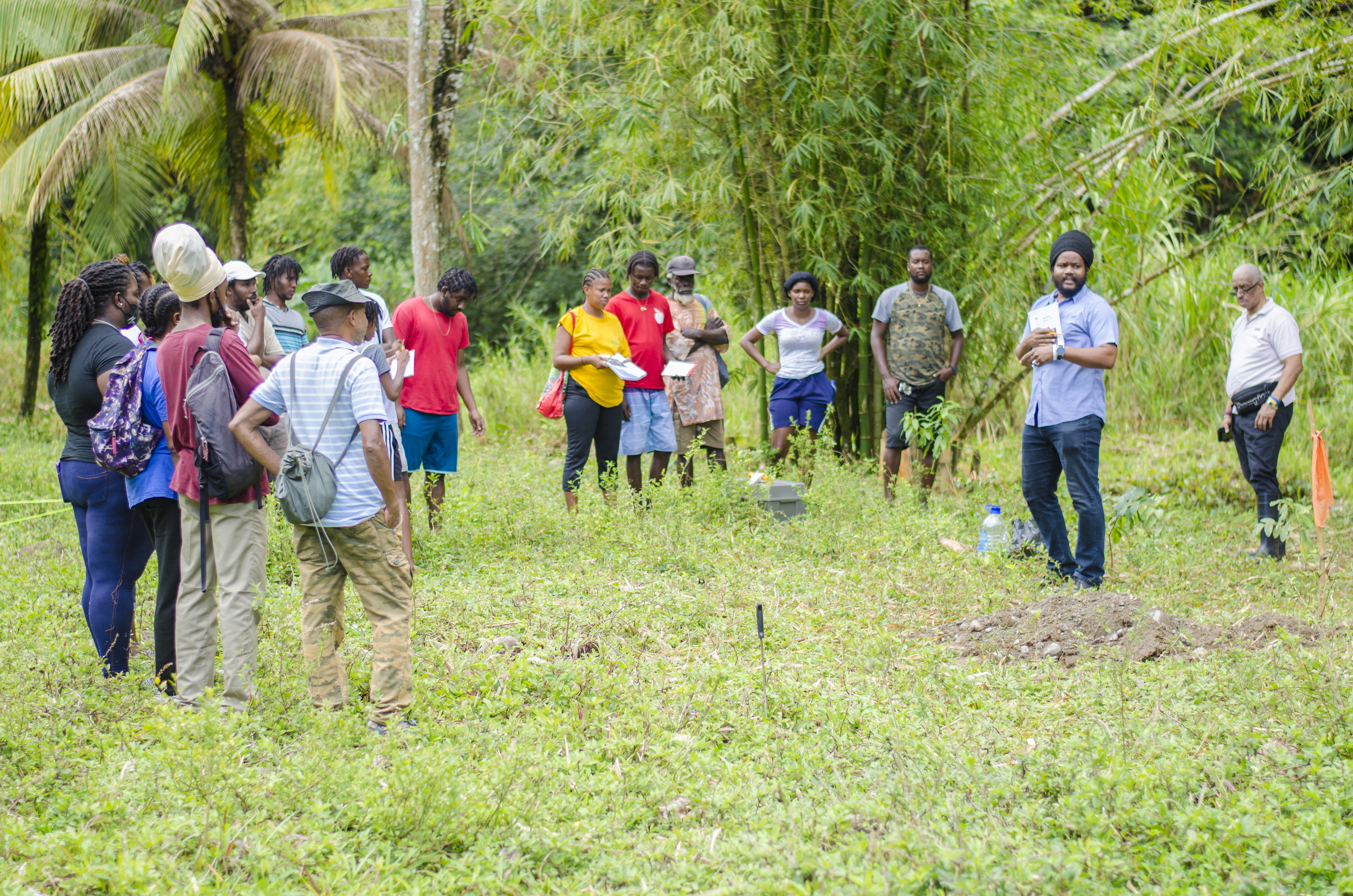
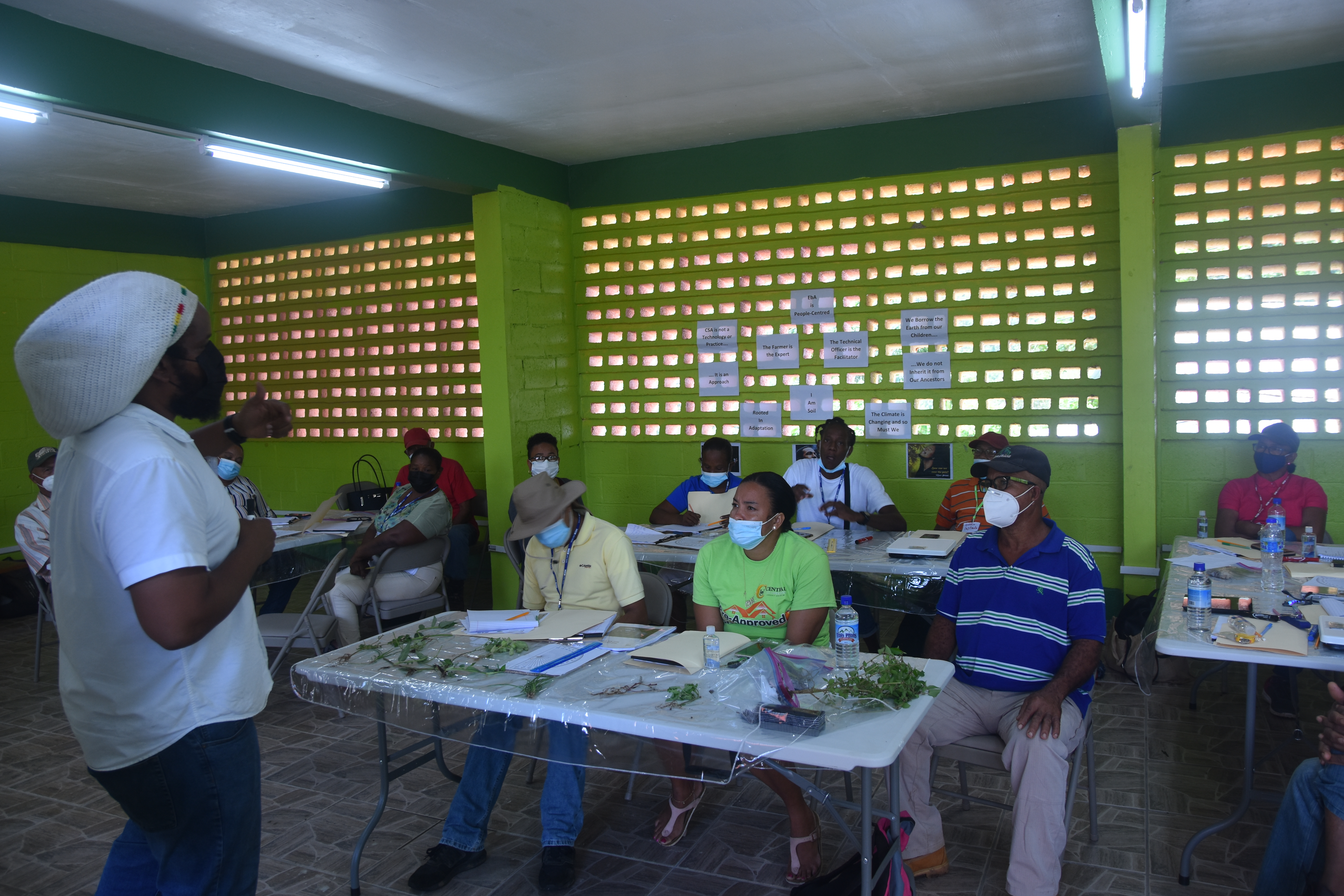
Firstly, let us establish that acronyms do make shorter headlines. But in an SMS world, acronyms can mean several things depending on your field of work and perspective. What these mean and how they interconnect will become clearer, as we chat with Dr. Chaney St. Martin, IICA’s International Specialist in Soil and Water, for the Caribbean Region. ‘Dr. Chaney’ returned from Egypt his first-ever COP (Conference of Parties) after 27 years of these global climate change talks. As one of the co-designers of the IICA-CBF project to tackle climate change impacts in Small Island Developing States (SIDS), using Nature-based Solutions (NbS), we are interested to hear his views on how the COP talks reflect the realities of, and enable climate action in countries such as those in the Caribbean.
|
“how the COP talks reflect the realities of, and enable climate action in countries such as those in the Caribbean.” |
Q1: From your first COP-27, how connected do you think these global climate talks are to the realities of Caribbean SIDS?
CSM: I think it’s a question that could be asked in terms of time. Meaning that, I think increasingly, there will be greater connection between the realities of SIDS going forward, through various instruments, and organisations like the Alliance of Small Island States, which has a particular mandate to ensure that realities of SIDS are reflected at the high political and geopolitical levels. It is also being shown through the nexus between the environment and agriculture, which IICA is very much in tune with, as an agricultural and rural development institution. There are also direct routes, through existing instruments, like the Nairobi work program, where agriculture and also the Ministers of Agriculture have direct access to both of the judiciary arms of the COP to have that voice for agriculture.
SIDS are really at the end of the stick where a lot of the impacts are very crucial. So for me, while I do think that the connectedness is increasing, I think that we still have a lot more space to grow, in terms of whether the connectedness is translating into action or a power dynamic that reflects the reality of people on the ground facing the brunt of the impacts, although they are not the ones necessarily causing the climate problem; or even a resource mechanism that would provide for what SIDS actually need to action, to bear brunt and survive what is already here and what is coming. I think the ways that agriculture on a whole, and in particular, agriculture in SIDS are reflected or integrated into the COP talks warrants attention. A collective voice of agriculture is needed to determine how agriculture in SIDS and other developing states is featured in these climate talks.
|
“A collective voice of agriculture is needed to determine how agriculture in SIDS and other developing states is featured in these climate talks. ” |
Q2: What were the main types of climate actions featured in this COP27 and how do they sync with what you know about climate actions in the Caribbean?
CSM: That's the troublesome thing. Climate action, just the terminology, is always very broad and enveloping. I mean, there's so many things that could be featured under the issue of climate action or the different types of climate action. Through both the main events and the side events, there was a lot of diversity in terms of climate action at several levels. Climate action at the negotiating level, at the ground and example level, and at strategies and mechanisms that could be implemented or even established to permit that translation between these two high levels. So along this line, if you were to frame climate action like that, I think one of the loudest needs from small island states, including the Caribbean, would be syncing the terminology with the different types of climate action, including the issue of roles of the private sector. And for me that was the main thing for the COP.
Another really critical issue is that of damages and loss, and how to develop a mechanism where the Caribbean and by extension the SIDS, can actually and tangibly access and benefit from global support? Can the COP and the global community come to front in terms of how we treat this issue? There were some advances as this was the first COP of the 27 COPs, where this was on the agenda and actioned, in terms of even developing a mechanism and a fund for SIDS climate-caused damage and loss. While this has not been totally detailed as yet, SIDS and other developing states were at least able to maintain this item on the agenda and to make some headway, in the interest of enabling the type of climate actions needed. And so that is a very important outcome.
Another important and connected issue is that of general climate financing, not necessarily linked only to the damage and loss, but also the issue of adaptation. Again, from the stance of the Caribbean and SIDS who are at the receiving end of the climate impacts even as they are not the ones contributing a lot to the emissions, the issue is: are the global mechanisms in place to equally treat the issue of response mechanisms through adaptation? Linked to this is the issue of past financial commitments from the developed states, in terms of that 1 billion in climate financing agreed on in previous COPs. Obviously with that, the issue of climate justice comes in, particularly for indigenous peoples in terms of impacts on livelihoods and way of life. That was another critical conversation.
So for me, the main issues were on the table and they all connect directly to the Caribbean and small island states, in terms of how we can adapt, whether through NbS (nature based solutions), whether the financial and other resources needed for us to respond are accessible; and how can we leverage a collective power or action to ensure that the present and future state of the Caribbean as it relates to climate action at the policy, finance and system levels, etc., could be developed to treat with the now impacts, whether in agriculture or other sector.
|
“the main issues were on the table and they all connect directly to the Caribbean and small island states, in terms of how we can adapt …” |
Q3: Did you ‘feel’ a strong presence of nature-based solutions for climate actions at COP27?
CSM: I would say what was nice about that as I walked through the pavilion and the negotiation you could definitely see and feel the presence of nature based solutions. I think almost all the side events and some of the pavilions touched on that in some ways, and so there were experiences from different geographic areas, including from the Caribbean. CARICOM also presented very interesting work on NbS, in terms of the potential for climate action, particularly with the marine or the blue economy. I was fortunate to meet the Climate Change Program Manager of the Caribbean Biodiversity Fund, Dr. Ulrike Krauss, and we really had a nice conversation on climate solutions in general and the work of the CBF in enabling NbS.
I saw a lot of work in Philippines and more so I was very impressed with Singapore’s work in developing information systems to spatially and temporally map their natural resources, and then overlaying what they would call the tradeoffs, in terms of even informing investors on whether its nature-based solutions to be implemented or reinforced, which will pay both socio and economic dividends. I think that that was an excellent initiative and in many ways that's the direction that the SIDS may want to go. I think for the Caribbean, it really ties-off both the public and the private sector into a particular relationship; also with academia. Although it is a data-driven process, it is also very visual, so that persons could actually scrutinise for investment and action, whether it’s through investing in NbS to secure livelihoods or to address climate problems, but at the same time, turning that into a business enterprise, a livelihood enterprise, or a big investment whether it is through carbon credits or blue carbon. So there are a lot of things that I saw ringing there with the nature-based solution.
So while NbS was strongly featured at COP27, what is also more important is how NbS works in a particular context, where do we go from it, in terms of direct impact and the time needed for impact. So I would say, based on that question, I think that the nature based is being featured into the climate action at multiple levels, but there is a lot of work to be done, particularly in the Caribbean as to how we mainstream it and how we action it on the ground through civil society and Governmental and private sector institutions going forward.
|
“…there is a lot of work to be done, particularly in the Caribbean as to how we mainstream NbS and how we action it on the ground through civil society and Governmental and private sector institutions going forward. ” |
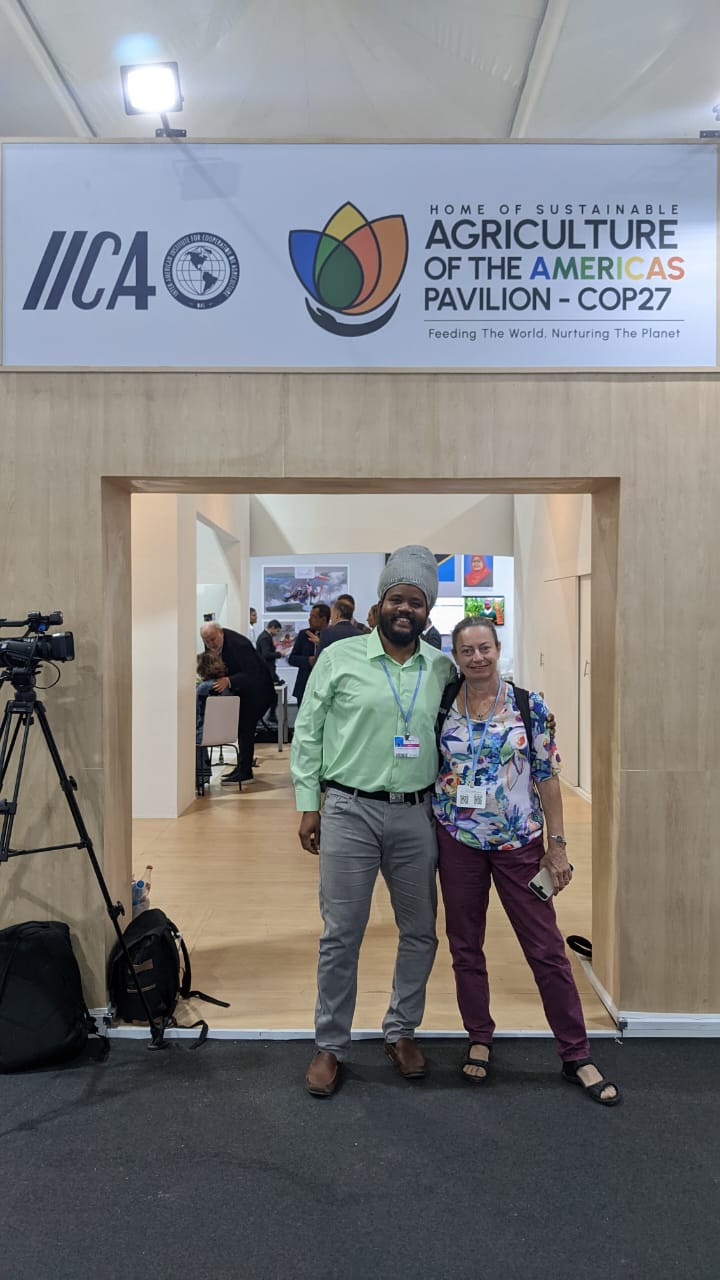
Q4: Any last impressions?
Just before this interview, I was at an excellent launch of a publication by GIZ. GIZ and the German government have been producing some wonderful work and projects including in climate justice and nature-based solutions. That is another thing that was very, very audible in COP in terms of the nexus of climate justice, indigenous persons and also nature based solutions. I think if we are looking forward to where we’re going and how we could particularly design projects, for example, learning from practical interventions like these need to be more seriously considered.
If I have to say one thing, I think it is that perhaps we need to improve the representation of the Caribbean at different kinds of negotiations, particularly those related to not only the global stocktaking etc., but also to the issue of a sectorial interest like agriculture. Where, by way of representation of technical persons and also political persons, there's an opportunity for us to really improve on that. I think that is what IICA tried to do there in terms of having a Pavilion, - the House of the Americas, House of Sustainable Agriculture, to allow environmental ministers, technicians, and agriculture to come together and have that discussion and also even that opportunity to come to COP, to have their voices heard. I think in the coming years, this is something that we would have to improve on, if we want to see things like the nature based solutions mainstreamed into agriculture and non-agricultural development initiatives generally, and those specific to climate action.
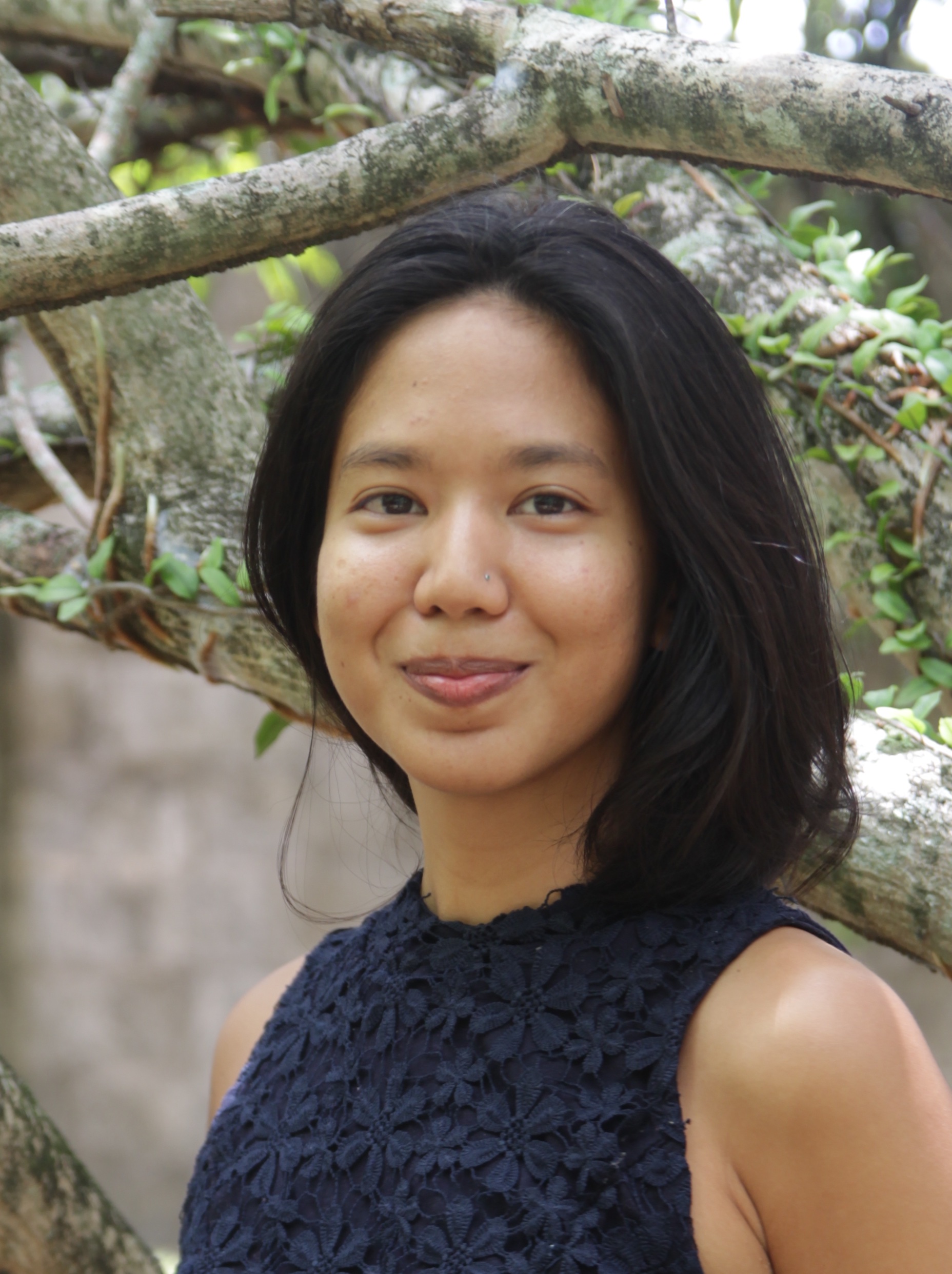 Rhonda Chan Soo is a Trinidadian documentary filmmaker and non-fiction multimedia storyteller developing a body of work dealing with contemporary issues of Caribbean identity. She earned an MA in documentary filmmaking from Wake Forest University and a BSc in Environmental Science from Furman University, and worked as a multimedia fellow with the Southern Environmental Law Center in Birmingham, Alabama in 2013 before returning home to Trinidad. Rhonda has been the Managing Director of Bird’s Eye View Productions since 2018. Her work is informed by empathy, a desire for justice and equality, and a critical practice that acknowledges her own positionality as a POC woman from the Global South. In her upcoming works, Rhonda aims to explore collective memory, identity and culture. Visit www.birdseyeviewtt.com to learn more about Rhonda’s work.
Rhonda Chan Soo is a Trinidadian documentary filmmaker and non-fiction multimedia storyteller developing a body of work dealing with contemporary issues of Caribbean identity. She earned an MA in documentary filmmaking from Wake Forest University and a BSc in Environmental Science from Furman University, and worked as a multimedia fellow with the Southern Environmental Law Center in Birmingham, Alabama in 2013 before returning home to Trinidad. Rhonda has been the Managing Director of Bird’s Eye View Productions since 2018. Her work is informed by empathy, a desire for justice and equality, and a critical practice that acknowledges her own positionality as a POC woman from the Global South. In her upcoming works, Rhonda aims to explore collective memory, identity and culture. Visit www.birdseyeviewtt.com to learn more about Rhonda’s work.
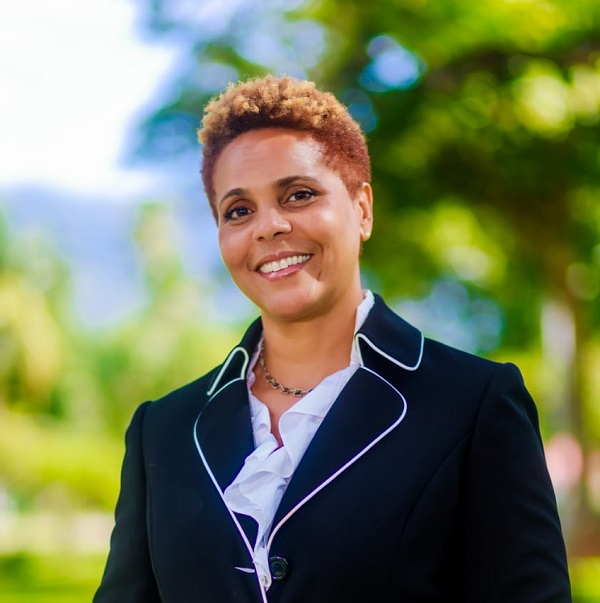 Diana Francis is a graduate of the University of the West Indies (UWI), St. Augustine – BSc. Economics (1986-1989) and Cave Hill - MPhil Economics (1993-1996). She has been working in agricultural and rural development, providing policy and trade support since 1989, at the national level through the Ministry of Agriculture in Dominica, and from 1993, at the regional level, with the Inter-American Institute for Cooperation on Agriculture (IICA). She has provided direct support to CARCOM and the OECS Secretariat, and individual Ministries of Agriculture, in formulating Agricultural Policy and Strategy, emphasizing the importance of rebuilding strong planning capacity for effective policy implementation. She has authored/co-authored a number of publications and written pieces on a range of topics in agricultural development as well as develop and manage implementation of externally funded regional projects. As the current IICA Representative in Trinidad and Tobago (from July 2019), she manages IICA’s technical cooperation activity in collaboration with a number of strategic partners in areas related to climate resilience, agricultural health and food safety, community-based agriculture and rural development, food and nutrition and importantly, providing coordinated and holistic development support to micro and small agro-processors.
Diana Francis is a graduate of the University of the West Indies (UWI), St. Augustine – BSc. Economics (1986-1989) and Cave Hill - MPhil Economics (1993-1996). She has been working in agricultural and rural development, providing policy and trade support since 1989, at the national level through the Ministry of Agriculture in Dominica, and from 1993, at the regional level, with the Inter-American Institute for Cooperation on Agriculture (IICA). She has provided direct support to CARCOM and the OECS Secretariat, and individual Ministries of Agriculture, in formulating Agricultural Policy and Strategy, emphasizing the importance of rebuilding strong planning capacity for effective policy implementation. She has authored/co-authored a number of publications and written pieces on a range of topics in agricultural development as well as develop and manage implementation of externally funded regional projects. As the current IICA Representative in Trinidad and Tobago (from July 2019), she manages IICA’s technical cooperation activity in collaboration with a number of strategic partners in areas related to climate resilience, agricultural health and food safety, community-based agriculture and rural development, food and nutrition and importantly, providing coordinated and holistic development support to micro and small agro-processors.
Note: The opinions expressed in this article are the responsibility of the authors and do not necessarily reflect the opinion of IICA.
|
If you have questions or suggestions for improving the BlogIICA, please write to the editor: Joaquín Arias |
Añadir nuevo comentario